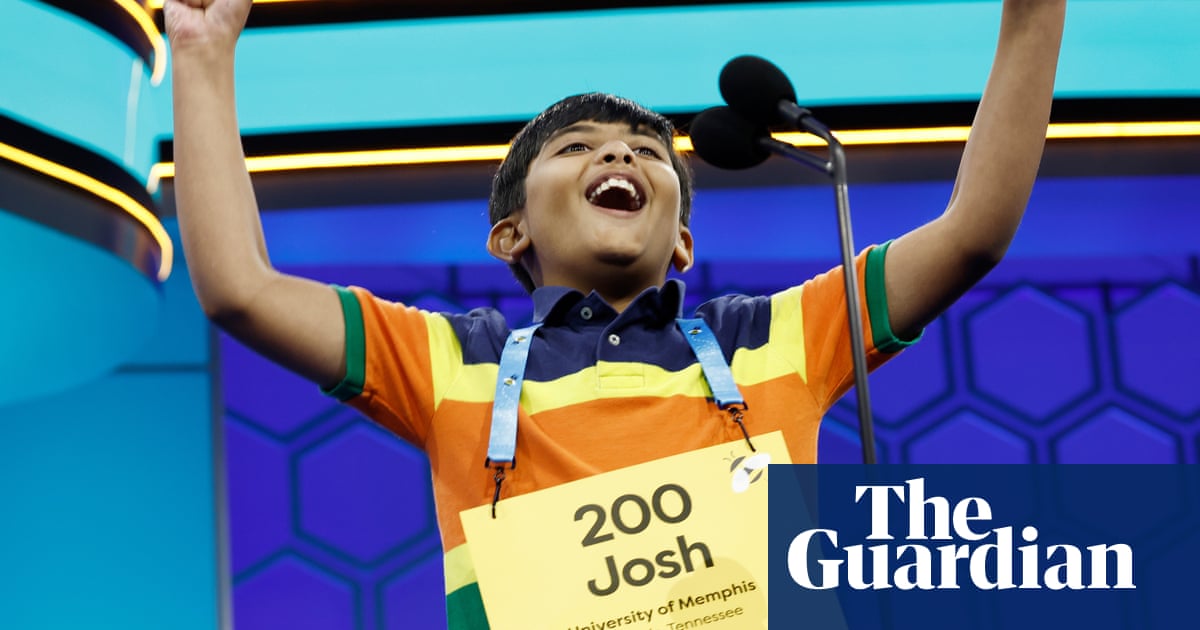We’re living through turbulent times, to say the least. Authoritarianism and fascismthreaten the United States. The conspiracy thinking, paranoia and manufactured outrage so characteristic of QAnon and the big lie about the 2020 election have colonized our political discourse like a fungus. Even the National Spelling Bee, a cultural institution which will be celebrating its centennial this year and which is generally exempted from the far right’s paranoid vitriol, hasn’t been immune. Earlier this year, a foofaraw erupted when right-wing outletsreportedon the acceptance of “womyn” as an alternate spelling of “women” in the regional-level wordlist which the National Spelling Bee issues each year.
The reason “womyn” was included in the wordlist wasn’t some shadowy feminist plot by the Bee’s organizers. The competition simply allows any word in the Merriam-Webster Unabridged dictionary, unless it is obsolete. “Womyn” is in the dictionary, along with tens of thousands of other words, such as “pointless”, “culture” and “war”.
With zero self-awareness, an anti-trans podcast hostragedthat the Bee’s uncontroversial decision to allow “womyn” was a manifestation of “fabricated issues” and “totally manufactured outrage.” On Fox News, shesnarled, “How lucky are we to live in the United States of America, where the spelling of women, never mind the definition, has become a national debate.” Samantha Poetter-Parshall, a Kansas state representative, joined in the criticism,callingthe inclusion of womyn an instance of “crazy indoctrination of our children.” A parent quoted inreportageon the faux scandal shared Poetter-Parshall’s concern, asserting, “This is supposed to be about spelling and language, not ideology.”
George Orwell, the author of Animal Farm, 1984, and the essay Politics and the English Language, would be startled to hear such a complaint. Orwell deeply understood the intimate relationship between language, thought, and politics. He keenly observed how “in our time, political speech and writing are largely the defense of the indefensible ... Political language has to consist largely of euphemism, question-begging and sheer cloudy vagueness. Defenseless villages are bombarded from the air, the inhabitants driven out into the countryside, the cattle machine-gunned, the huts set on fire with incendiary bullets: this is calledpacification. Millions of peasants are robbed of their farms and sent trudging along the roads with no more than they can carry: this is calledtransfer of populationorrectification of frontiers.People are imprisoned for years without trial, or shot in the back of the neck or sent to die of scurvy in Arctic lumber camps: this is calledelimination of unreliable elements.”
In our time,imprisoning and attemptingto deport legal residents of the US for their political views and sendinglegal residentsandgay people fleeing persecutionin Venezuela – andpotentially US citizens– to prisons in El Salvador where torture is widespread based onflimsy evidence from disgraced police officersis called “securing our homeland”. The announcement of economically ruinous tariffs which have wiped trillions off the stock market is called “liberation day.” Orwell believed that “to think clearly is a necessary first step towards political regeneration.” To combat the creep of Orwellian language, he argued that we should “recognize that the present political chaos is connected with the decay of language, and that one can probably bring about some improvement by starting at the verbal end,” aiming to always use “language as an instrument for expressing and not for concealing or preventing thought”.
In its emphasis on linguistic precision and its heartfelt delight in words, the National Spelling Bee is already political in Orwell’s sense. The Bee also has an implicit politics of appreciation for cultural and linguistic diversity. Though most spellers are American, the competition hasan international flavor: it regularly features participants from Ghana, Canada, Jamaica, South Korea, China, and Nigeria, and spelling bees have sprung up in countries like Zimbabwe too. The welcome which the Bee extends to logophiles from all over the world inculcates in kids an appreciation of other cultures and promotes a cosmopolitan worldview. Spellers study words from Latin, French, Greek, Italian, Portuguese, Spanish and German; this cultivates their love of linguistic variety. What’s more, the fact that the South Asian community regularly dominates the upper echelons of the competition reaffirms the importance of immigration to our society.
These days, even if many Americans reject the Trump regime’s ugly attitudes and practices, xenophobia and racism are rampant, hearkening back to the bad old days of the Know-Nothing Party and the Chinese Exclusion Act. The US government has become increasingly hostile to international travelers: there have been a spate of horrific stories of tourists, visitors, and legal residents fromGermany,Canada,France, theUnited Kingdom,Australia, and elsewhere who have done nothing wrong being arrested, detained, and held for weeks by Ice, or being refused entry to the US and deported. In such a context, the National Spelling Bee’s steadfast commitment to multiculturalism is all the more essential.
Despite itsunfortunate Covid-induced cancellationin 2020 and some turbulence fromrule changesandregional sponsor attritionin 2021 and 2022, the National Spelling Bee has been a relative constant for students in an age of extreme dislocation and upheaval. In these politically polarized times, it offers Americans an opportunity for joy and collective uplift. It celebrates education, attention, focus, dedication, andquiet, patient effort. It teaches students grit, discipline, and linguistics. It reminds us ofthe importance of the humanin an age of AI. It reinforces the importance of good sportsmanship and fair play. It promotesrespect and friendshiptowards humanity at large. It invites us to honor and remember the values that ought to unite us all. The National Spelling Bee is a reminder of what America has been – and what it must continue to be.
Sign up toThe Recap
The best of our sports journalism from the past seven days and a heads-up on the weekend’s action
after newsletter promotion
Scott Remer is aprofessional spelling bee tutor, freelance writer, and the author of the textbooksWords of Wisdom: Keys to Success in the Scripps National Spelling Bee,Sesquipedalia!: A Rigorous Vocabulary Study Guide,Regional Bee Ready!, andA Few Final Words of Wisdom.
